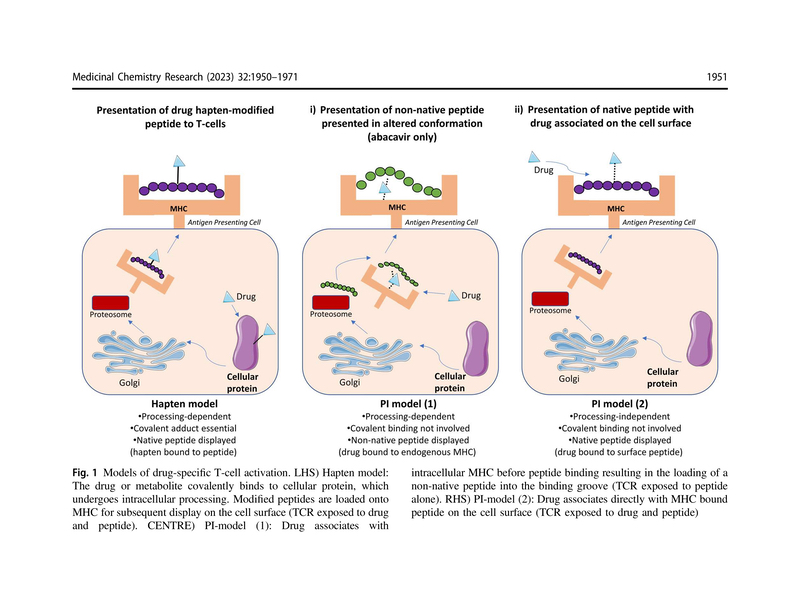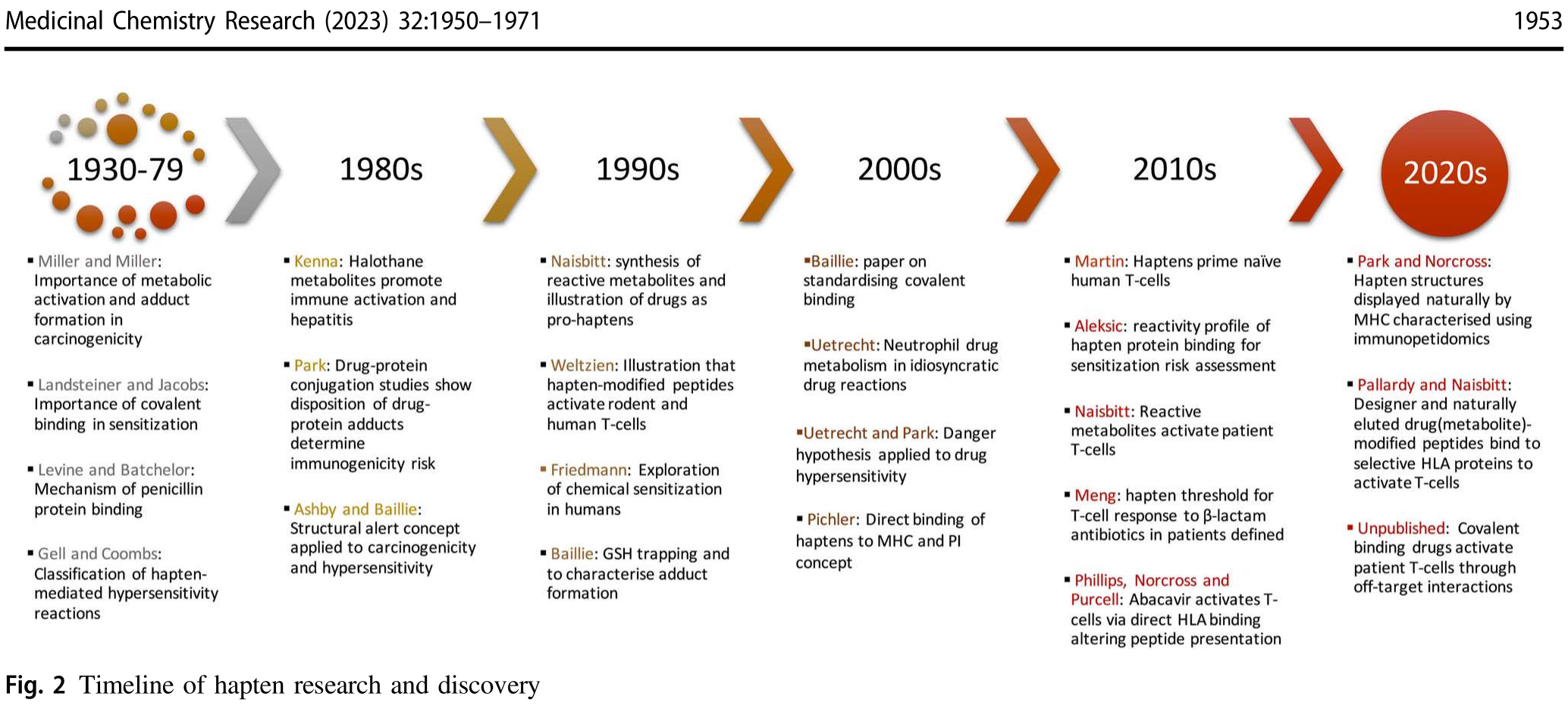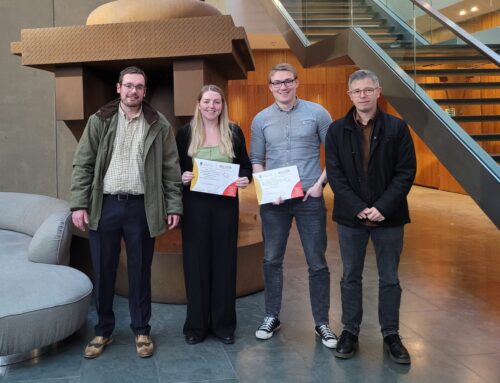What’s been Hapten-ing over the last 88 years?

Fancy a historic look at the field of drug hypersensitivity? Well, here’s a fairly hefty review paper…
Co-authored by the immunopharmacology team at the University of Liverpool (Xiaoli Meng, Paul Thomson, Dean Naisbitt) and Immunotoxicology Lead Sean Hammond from ApconiX, this article is a tour through the history of scientific advancements in understanding on the relationship between drug protein adduct formation (haptenation) and development of immunological adverse drug reactions (drug hypersensitivity) over almost 90 years of continuous research.
The hapten hypothesis states that “immunogenicity of low molecular weight organic chemicals is dependent on the covalent modification of self-proteins.”
This paper looks back at some of the great hapten-ings in the fields of drug hypersensitivity and looks at the state of the science now. From the seminal studies of Landsteiner and Jacobs through to questions over covalent targeted protein degraders, this review covers many of the key findings that have shaped our mechanistic understanding today.
Commissioned and written last year as part of a special issue in honour of Tom Baillie, the authors dedicated this article to a departed giant of the field; B. Kevin Park. The 27th of January marks the anniversary of the passing of Professor Kevin Park. Kevin was a great proponent of the hapten theory, and his involvement in advancing the frontiers of mechanistic understanding in this area of translational toxicology spanned 4 decades and a plethora of publications.
Follow this link to view other ApconiX publications







